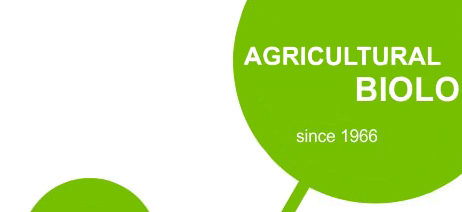doi: 10.15389/agrobiology.2017.3.478eng
UDC 63:573.7:502/504(4-011)
GENERAL POSITION OF ORGANIC AGRICULTURE IN WESTERN
EUROPE:
CONCEPT, PRACTICAL ASPECTS AND GLOBAL PROSPECTS
J.D. van Mansvelt1, S.K. Temirbekova2
1Down2Earth foundation, p/a Hageweer 43, NL 1151 ER, Broek in Waterland, The Netherlands, e-mail jandiek@vanmansvelt.nl (corresponding author);
2All-Russian Research Institute of Phytopathology, Federal Agency of Scientific Organizations, 5, ul. Institute, pos. Bol’shie Vyazemy, OdintsovskiiRegion,Moscow Province, 143050 Russia, e-mail sul20@yandex.ru (corresponding author)
ORCID:
Temirbekova S.K. orcid.org/0000-0001-9824-6364
Received March 10, 2017
Here we present a deep analysis of agriculture in Western Europe, the provisions and principles of its ecological direction. It is noted that Germany and France are the leaders of the EU countries for the production of environmentally friendly products. Organic agriculture is viewed as a holistic ecosystem, where each change affects a complex of complex interrelations, which include both genetic species diversity of crops and livestock. In natural ecosystems, the synthesis, decomposition and consumption of nutrients with the participation of green plants (photosynthesis), insects, animals (herbivores and predators), and microorganisms are constantly occurring. The basis of ecological agriculture and organic farming is healthy soil and fertility soil. Fertile and biologically active soil will provide plants with a sufficient number of nutrients for optimal growth and development, minimize possible damage from diseases, pests and weeds. Improvement of soil ecosystems guarantees the best yields, it is a kind of circular model of long-term planning. The combination of plant growing and animal husbandry in the ecosystem is noted. It represents the alternation of processes of synthesis and decomposition, which is accompanied by an increase in the quality of life in soils, plants, animals, in the life of the entire agroecosystem. Organic fertilizers create favorable conditions for inclusion in the agroecosystem elements that accelerate life processes in the soil and thereby ensure the growth of plants. A special role is assigned to the rotation in ecological agriculture. It promotes the cultivation of legumes — the main suppliers of nitrogen in the agroecosystem. It is the most important means of protection against pests and diseases, and it interferes with a long monoculture. It is a mean of regulating weed vegetation. Inclusion of perennial forage crops in crop rotation helps a farmer prevent the extreme growth of each species of weeds to a dangerous level. The importance of manure and slurry for the ecosystem of the soil, as well as that of the straw litter for animals, was noted. Data on hunger and obesity in some countries are given. Integrated agriculture is also considered as an alternative to traditional agriculture. But solving environmental pollution problems by integrated agriculture is less effective. In the EU countries, financial support is provided to organic farming. By 2020, the world market for organic products is projected to be 200-250 billion dollars, with the potential of the Russian market of 700 billion rubles. That is, Russia can account for 10-15 % of the market. In Russia, there is a demand for organic food. Organic agriculture contributes not only to the production of healthy food, but also to the preservation of the habitat, biodiversity and respect for wild and agricultural animals.
Keywords: organic products, organic farming, agroecosystems, soil fertility, healthy soil, natural fertilizers, legumes, crop rotation, integrated agrotechnology, biodiversity.
REFERENCES
- Van Mansvel't Ya.D., Myulder Dzh. Agrarnaya nauka, 1994, 4: 22-24 (in Russ.).
- Van Mansvelt J.D., van der Lubbe M.J. Checklist for sustainable landscape management. Elsevier, 1999.
- Van Mansvelt J.D. Methodische Aspekte Der Alternativen Landwirtschaft. In: Ökologie und Landwirtschaft. Eine Losung für die Zukunft? Stiftung Ökologischer Landbau. Hartmann, Kiel, BRD, 1984: 51-76.
- Van Mansvel't Ya.D., Temirbekova S.K. Materialy Mezhdunarodnoi nauchno-prakticheskoi konferentsii «Fundamental'nye i prikladnye issledovaniya v bioorganicheskom sel'skom khozyaistve Rossii, SNG i ES» (9-12 avgusta 2016 goda), tom 1 [Proc. Int. Conf. «Fundamentals and practical study in bioorganic agriculture in Russia, CIS and EC». August 9-12, 2016)]. Moscow, 2016, V. 1: 250-263 (in Russ.).
- Temirbekova S.K., Molchan J.M., Van Mansvelt J.D., Gareev R.G., Gotovseva I.P., Musinov K.M., Drozdovskaya A.A. Organic agriculture: adaptability, immunity, plant breeding: Rudolf Steiners «Course on agriculture» — 80-year anniversary. Moscow-Astana, 2005 (ISBN 9965-725-7-6).
- Zelinskaya V.I. Agrarnoe obozrenie, 2014, 5: 18-22 (in Russ.).
- Semenov A.M., Glinushkin A.P., Sokolov M.S. Materialy Mezhdunarodnoi nauchno-prakticheskoi konferentsii «Sovremennye problemy gerbologii i ozdorovleniya pochv» (21-23 iyunya 2016 goda) [Proc. Int. Conf. «Relevant problems of garbology and soil health» (June 21-23, 2016)]. Bol'shie Vyazemy, 2016: 283-291 (in Russ.).
- Semenov A.M., Semenov V.M., Van Bruggen A.Kh.K. Agrokhimiya, 2011, 12: 4-20 (in Russ.).
- Doran J.W., Zeiss M.R. Soil health and sustainability: managing the biotic component of soil quality. Appl. Soil Ecol., 2000, 15: 3-11.
- Semenov A.M., Sokolov M.S. Agrokhimiya, 2016, 1: 3-16 (in Russ.).
- Van Bruggen A.H.C., Semenov A.M. Soil health and soilborne diseases in organic agriculture. In: Plant diseases and their management in organic agriculture. M.R. Finckh, A.H.C. van Fruggen, L. Tamm (eds.). APS PRESS, 2015.
- Saranin E.K., Nesterova A.V. V sbornike: Bolotovskie chteniya 1997, 1998 i 1999 godov [In: Bolotov Readings 1997-1999. A.A. Zhuchenko (ed.)]. Moscow, 2000: 44-45 (in Russ.).
- Zhuchenko A.A. Strategiya adaptivnoi intensifikatsii sel'skogo khozyaistva (kontseptsiya) [Strategy for adaptive intensification in agriculture: a concept]. Pushchino, 1994 (in Russ.).
- Zhuchenko A.A. Ekologo-geneticheskie osnovy prodovol'stvennoi bezopasnosti Rossii [Ecogenetic fundamentals of food security in Russia]. Moscow, 2008 (in Russ.).
- Zhuchenko A.A. Adaptivnoe rastenievodstvo (ekologo-geneticheskie osnovy). Teoriya i praktika. Tom II [Adaptive plant growing — ecogenetic bases. Fundamental and practical aspects. V. II]. Moscow, 2009 (in Russ.).
- Vil'yams V.R. Zemledelie s osnovami pochvovedeniya [Agriculture with the fundamentals of soil science]. Moscow, 1939 (in Russ.).
- Bolotov A.T. Izbrannye trudy [Selected works]. Moscow, 1988 (in Russ.).
- Top 10 Composting Techniques. Available http://www.compostjunkie.com/composting-techniques.html. Accessed June 05, 2017.
- Zhuchenko A.A. Adaptivnaya strategiya ustoichivogo razvitiya sel'skogo khozyaistva Rossii v XXI stoletii. Teoriya i praktika. Tom I [Adaptive strategy of agriculture development in Russia for XXI. Fundamentals and practical aspects. V. I]. Moscow, 2011 (in Russ.).
- Zhuchenko A.A. Puti innovatsionno-adaptivnogo razvitiya APK Rossii v XXI stoletii [Innovative and adaptive development of Russian agriculture for XXI]. Kirov, 2011 (in Russ.).
- Zhuchenko A.A. Obespechenie prodovol'stvennoi bezopasnosti Rossii v XXI veke na osnove adaptivnoi strategii ustoichivogo razvitiya APK (teoriya i praktika) [Food security in Russia for XXI, as based on adaptive strategy of sustainable development of agriculture: theoretical bases and practice]. Kirov, 2009 (in Russ.).
- Loshakov V.G. Agrarnaya nauka, 1994, 6: 24-26 (in Russ.).
- Loshakov V.G. Materialy Mezhdunarodnoi nauchno-prakticheskoi konferentsii «Fundamental'nye i prikladnye issledovaniya v bioorganicheskom sel'skom khozyaistve Rossii, SNG i ES» (9-12 avgusta 2016 goda), tom 2 [Proc. Int. Conf. «Fundamentals and practical study in bioorganic agriculture in Russia, CIS and EC». August 9-12, 2016)]. Moscow, 2016, V. 2: 203-222 (in Russ.).
- Loshakov V.G. Sevooborot i plodorodie pochvy [Crop rotation and soil productivity. V.G. Sychev (ed.)]. Moscow, 2012 (in Russ.).
- Loshakov V.G. Promezhutochnye kul'tury v sevooborotakh Nechernozemnoi zony [Intermediate crops for crop rotations in Russian Nechernozemie]. Moscow, 1980 (in Russ.).
- Oomen G.J.M. Nitrogen cycling and nitrogen dynamics in ecological agriculture. Biological Agriculture and Horticulture, 1995, 11(1-4): 181-192.
- Srednicka-Tober D., Baranski M., Seal C., Sanderson R., Benbrook C., Steinshamn H., Gromadzka-Ostrowska J., Rembialkowska E., Skwarlo-Sonta K., Eyre M., Cozzi G., Larsen M.K., Jordon T., Niggli U., Sakowski T., Calder P.C., Burdge G.C., Sotiraki S., Stefanakis A., Yol-
cu H., Stergiadis S., Chatzidimitriou E., Butler G., Stewart G., Leifert C. Composition differences between organic and conventional meat; a systematic literature review and meta-analysis. Brit. J. Nutr., 2016, 115(6): 994-1011 CrossRef - De Schutter O. Report of the special rapporteur on the right to food. Available http://www2.ohchr.org/english/issues/food/docs/A-HRC-16-49.pdf. Accessed June 05, 2017.
- Semedo M.H. Agriculture should be integrated in climate change policies. Available http://www.fao.org/members-gateway/news/detail/en/c/357972/. Accessed June 05, 2017.
- Ponisio L.C., M’Gonigle L.K., Mace K.C., Palomino J., de Valpine P., Kremen C. Diversification practices reduce organic to conventional yield gap. Proc. Biol. Sci., 2014, 282(1799): 20141396 CrossRef
- Waste and spoilage in the food chain. Decision Intelligence Document. The Rockefeller Foundation, 2013. Available https://assets.rockefellerfoundation.org/app/uploads/20130528220516/Waste-and-Spoilage-in-the-Food-Chain.pdf. Accessed June 05, 2017.
- Gustavsson J., Cederberg C., Sonesson U., van Otterdijk R., Meybeck A. Global food losses and food waste —Extent, causes and prevention. FAO, Rome, 2011.
- Philpott T. Organic farming just as productive as conventional, and better at building soil, Rodale finds. March 26. 2011. Available http://grist.org/article/2011-03-25-rodale-data-show-organic-just-as-productive-better-at-building/. Accessed June 05, 2017.
- Monastyrskii O.A. Materialy Mezhdunarodnoi nauchno-prakticheskoi konferentsii «Sovremennye problemy gerbologii i ozdorovleniya pochv» (21-23 iyunya 2016 goda) [Proc. Int. Conf. «Relevant problems of garbology and soil health» (June 21-23, 2016)]. Bol'shie Vyazemy, 2016: 280-283 (in Russ.).
- Van Mansvelt J.D., Znaor D. Checklist for sustainable landscape management. Elsevier, 1999: 41-84.













